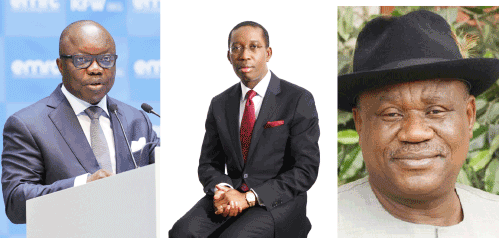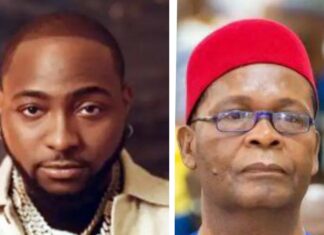Special Correspondent, CHRIS UDOH, writes from Asaba, on individuals seen to be jostling for Delta State governorship seat in 2015.
As the battle over who succeeds Governor Emmanuel Uduaghan as Delta State Governor in 2015 intensifies, aspirants of different leanings and ideologies are beginning to emerge. In the same stead, alliances are being formed and consultations are taking place as well.
Who the cap fits
Amid the scheme, concerned analysts have been trying to figure out who the cap fits. A related issue is the quality of leadership that Delta desires.
Residents and indigenes have been concerned about how the state can be blessed with a leadership that can be trusted to take it to the next level of economic and infrastructural development, and provide job opportunities for the unemployed youths, create skill acquisition projects and champion the cause of orphans and the vulnerable children out there in the streets.
Cronyism
This apprehension gains ground given the country’s peculiar political system which analysts say has been afflicted with the concept of negotiated withdrawal and selective elimination by which a departing ruling class conducts itself out of office at the end of its tenure and instals another group through a flawed electoral process, to protect its interest.
One of the demerits of negotiated withdrawal is that this draconian political system does not provide enabling environment for the people to choose their right candidates, or vote people they hope can give them effective representation and provide the platform for an accelerated economic advancement.
The immediate impact of this unprincipled leadership recruitment process is that the masses are living under suppressed political rights, while their future remains subject to the whims of the so-called political overlords.
Uduaghan’s itinerary
Based on this ugly tradition, the agenda of the Uduaghan administration, many have argued, should be on how the people can have an experienced candidate who can put the people first in the resource mobilisation and allocation for enhanced development of the state.
They add that one thing the masses should do is to enquire into the past and present personality profiles of these individuals, to ascertain where they are coming from and their destination. This, it has been argued, is because to do what is right, the electorate needs to know what is true to be able to direct the tide of events.
The old brigade
Incidentally, most of those seeking to govern Delta have been part of successive administrations in the state. Most of them, it has also been observed, have been in elective positions.
Critics, in fact, describe some of them as old political brigade without new ideas other than seeking avenues for self-aggrandisement and sharing the booties of government offices.
There are indications that as the battle for Asaba Government House draws nearer, some of these politicians have started resurfacing with intentions at appropriating the governorship position.
The ideal candidate
Concerned Delta indigenes have consequently called for a halt to their antics and need to shop for people with fresh ideas and broad knowledge of management and administration that can drive the state ahead of others.
The ideal candidate, they state, should not be a mere champion of a particular section of the state, but one with vision that cuts across the ethnic divides of the state.
Among such men with leadership characteristics and management culture from the private sectors and other establishment are David Edevbie, Festus Okwa, Tony Obuh and Peter Okocha.
Their strength
Edevbie is said to be eminently qualified for the job, given his pedigree as a tested technocrat. His exploits at the Commonwealth Development Corporation (CDC) – now known as ACTIS – has not only changed the fortunes of many countries in Asia and the Pacific region, but also impacted greatly on the economy of Delta when he doubled as the Commissioner for Finance and Economic Planning, in the James Ibori administration between 1999 and 2005.
Okocha, chief executive of several blue chips companies in the country, stands out for providing gainful employment to hundreds of Nigerians.
Given his vast experience and profound leadership qualities, his admirers see him as having the capacity to manage the resources of Delta judiciously.
They further enthuse that he has, from the proceeds of his businesses and education initiatives under the aegis of Peter Okocha Foundation, sunk several boreholes in various communities and built intro-tech laboratories in some schools.
“If these private sector individuals could do these things with their personal resources, they could do more with state resources entrusted in their hands,” an Asaba resident, who craved anonymity, volunteered.
Okowa, Senate Committee chairman on Health; Festus Okubor former commissioner in the state; and Ngozi Olejeme, Chairman, Nigerian Social Insurance Trust Fund (NSITF), are among other big names touted to be interested in the plum job. They also have their followers, strength and limitations in going for the office.













